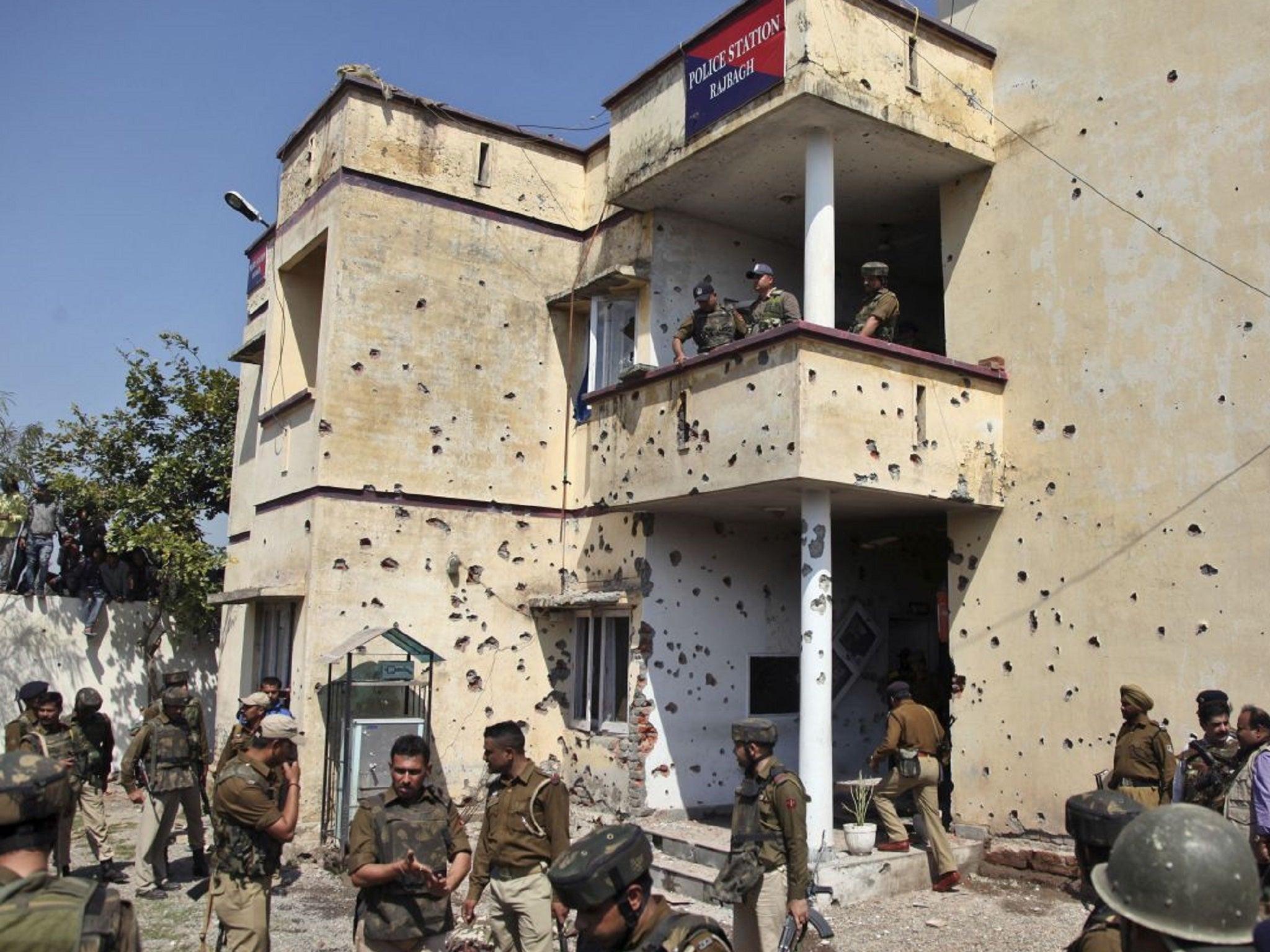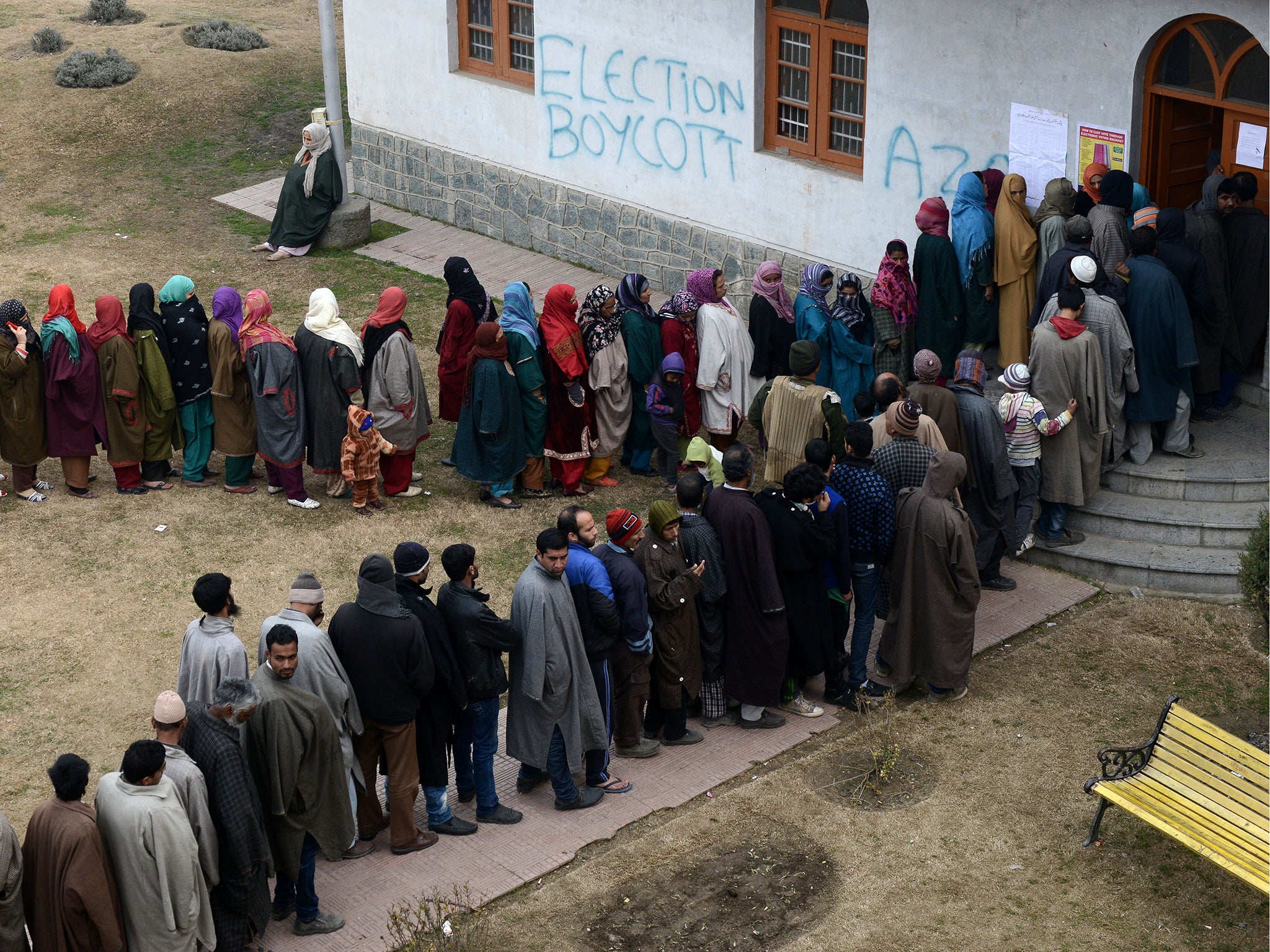Kashmir shootings: Five dead, including two militants, during raid on Indian police station
Two of the militants who forced their way into the station were also killed

Your support helps us to tell the story
From reproductive rights to climate change to Big Tech, The Independent is on the ground when the story is developing. Whether it's investigating the financials of Elon Musk's pro-Trump PAC or producing our latest documentary, 'The A Word', which shines a light on the American women fighting for reproductive rights, we know how important it is to parse out the facts from the messaging.
At such a critical moment in US history, we need reporters on the ground. Your donation allows us to keep sending journalists to speak to both sides of the story.
The Independent is trusted by Americans across the entire political spectrum. And unlike many other quality news outlets, we choose not to lock Americans out of our reporting and analysis with paywalls. We believe quality journalism should be available to everyone, paid for by those who can afford it.
Your support makes all the difference.Suspected rebels stormed an Indian police station in the disputed Kashmir region yesterday and a four-hour gun fight left two paramilitary soldiers and a civilian dead.
Two of the militants – who wore indistinguishable army uniforms – also died in the shootings and at least nine others, including a senior police official, were injured in the Raj Bagh station.
It is the first major attack since a new coalition government involving India’s ruling Hindu nationalist Bharatiya Janata Party and the Islamic-led People’s Democratic Party took over the Muslim-majority Himalayan state earlier this month.
At least seven paramilitary officers, two policemen and a second civilian were wounded in the outskirts of Kathua in the Indian-administered region of Jammu. No groups have yet claimed responsibility for the shootings.
Indian forces also rescued at least two dozen paramilitary and police officers who had been trapped inside the station that is marked with hundreds of bullet holes, police said.
The area has been cordoned off by the Indian army and paramilitary soldiers. Traffic on the nearby main highway connecting Jammu with the rest of country has been suspended.
Militants hijacked a car and drove it to the police station, where they forced several civilians to enter in order to gain access to the building – Inspector-General Danish Rana said.
They then killed a police sentry and one of the civilians, and pushed their way into the building, he added.
“Most likely, the militants infiltrated from the Pakistani side overnight,” Rana said.

Rebel groups have been fighting against Indian rule since 1989 and more than 68,000 people have been killed in the disputes that have involved uprisings, riots and shootings.
Indian officials quickly blamed Pakistan, and said the incident justified a controversial law that allows their soldiers based in Kashmir to shoot-to-kill suspects without prosecution and to arrest suspected militants without a warrant.
The Armed Forces Special Powers Act also gives Kashmir-based police wide-ranging powers of search and seizure.
Jitendra Singh, a junior minister in India’s prime minister’s office, said the attack should “be an eye opener and loud and clear message” to those who want to revoke the special powers act.
India has long accused Pakistan of supporting the rebels with arms, training and logistical support — a charge Pakistan denies.
Experts and human rights workers argue that the impunity law allows abuses by law enforcement officers, which only further propels the radicalisation of young people against Indian government control.
Although the armed rebellion has been largely suppressed, public resentment against Indian rule remains deep and the resistance is now principally expressed through street protests.
Join our commenting forum
Join thought-provoking conversations, follow other Independent readers and see their replies
0Comments